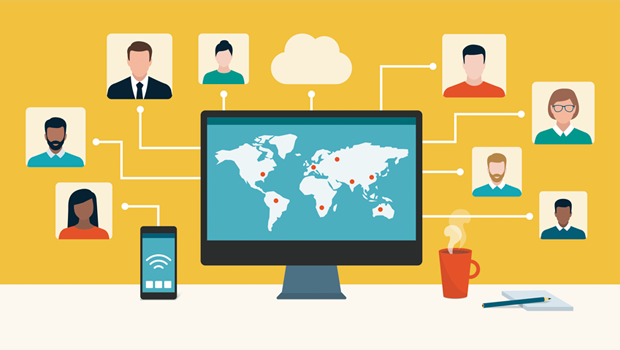The shift to remote workforce during the pandemic taught us valuable lessons about cybersecurity. However, as remote work becomes the norm, Nigerian companies face new security challenges, especially when protecting sensitive data across a dispersed workforce. A recent report from the Ministry of Economic Affairs in the Netherlands underscores the importance of cybersecurity for remote workforces, citing that many data breaches result from employee mistakes, such as sending documents to the wrong address or inadvertently exposing personal data.
The increase in cyberattacks targeting remote work setups means Nigerian CISOs must adopt robust security measures to protect their organizations. Here are actionable cybersecurity tips to help Nigerian companies safeguard their remote workforce.
1. Implement Zero Trust Security
The zero trust model is essential in today’s remote work environment, assuming that every network access request could be a potential threat. By verifying users and devices at every level, zero trust helps prevent unauthorized access.
Actionable Steps:
- Implement strict Identity and Access Management (IAM) policies for user and device verification.
- Use multi-factor authentication (MFA) for additional security.
- Continuously monitor user activity, flagging any suspicious behavior.
2. Enforce Strong Endpoint Security
As remote work relies heavily on various devices, endpoint security becomes crucial for protecting sensitive data.
Actionable Steps:
- Use Endpoint Detection and Response (EDR) solutions to monitor remote devices in real-time.
- Deploy updated antivirus software and schedule regular vulnerability assessments.
- Enforce strict policies for approved software installations on all devices.
3. Secure the Use of Virtual Private Networks (VPNs)
VPNs are vital for secure remote access, but they must be configured and managed carefully.
Actionable Steps:
- Choose VPNs with high encryption standards, such as AES-256, to ensure data privacy.
- Limit VPN access based on roles and needs to minimize exposure.
- Require MFA for VPN access to strengthen login security.
4. Educate Employees on Cybersecurity Practices
Human error is one of the leading causes of security incidents, making employee training essential.
Actionable Steps:
- Train employees to recognize phishing emails, suspicious links, and social engineering tactics.
- Conduct regular cybersecurity drills to prepare for real-life situations.
- Update training to address the latest security threats.
5. Use Cloud-Based Security Solutions
Cloud-based security offers flexibility, scalability, and centralized protection, ideal for remote teams.
Actionable Steps:
- Invest in Cloud Access Security Brokers (CASBs) to monitor cloud applications and enforce security policies.
- Opt for secure collaboration tools with built-in encryption.
- Regularly audit cloud configurations to avoid misconfigurations, a common vulnerability.
6. Implement Data Loss Prevention (DLP) Policies
Data Loss Prevention (DLP) policies prevent unauthorized data sharing, helping protect sensitive information.
Actionable Steps:
- Use DLP tools to monitor data transfers and restrict external sharing.
- Apply role-based access control to limit access to sensitive files.
- Ensure DLP policies are in compliance with Nigeria’s National Data Protection Regulation (NDPR).
7. Establish a Clear Incident Response Plan for Remote Teams
Having a remote-specific incident response plan can minimize the impact of potential security incidents.
Actionable Steps:
- Develop an incident response plan tailored to remote work-related threats.
- Provide employees with clear instructions on reporting suspicious activity.
- Test the incident response plan regularly to identify and address any gaps.
8. Leverage SIEM for Centralized Monitoring
A Security Information and Event Management (SIEM) system allows continuous, centralized monitoring of remote user activities, helping to detect anomalies quickly.
Actionable Steps:
- Deploy a SIEM system to aggregate data from remote sources.
- Configure alerts for unusual logins, file access, and data transfers.
- Regularly review SIEM logs to identify patterns and potential threats.
Conclusion
Securing a remote workforce requires Nigerian CISOs to take a proactive and comprehensive approach. By implementing zero trust, endpoint security, secure VPN policies, cloud-based solutions, and centralized monitoring, Nigerian companies can protect themselves against the growing cyber threats targeting remote work environments. With these strategies, organizations can ensure a resilient cybersecurity posture that keeps their remote operations secure.

